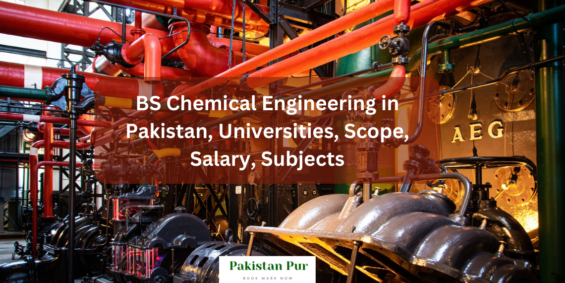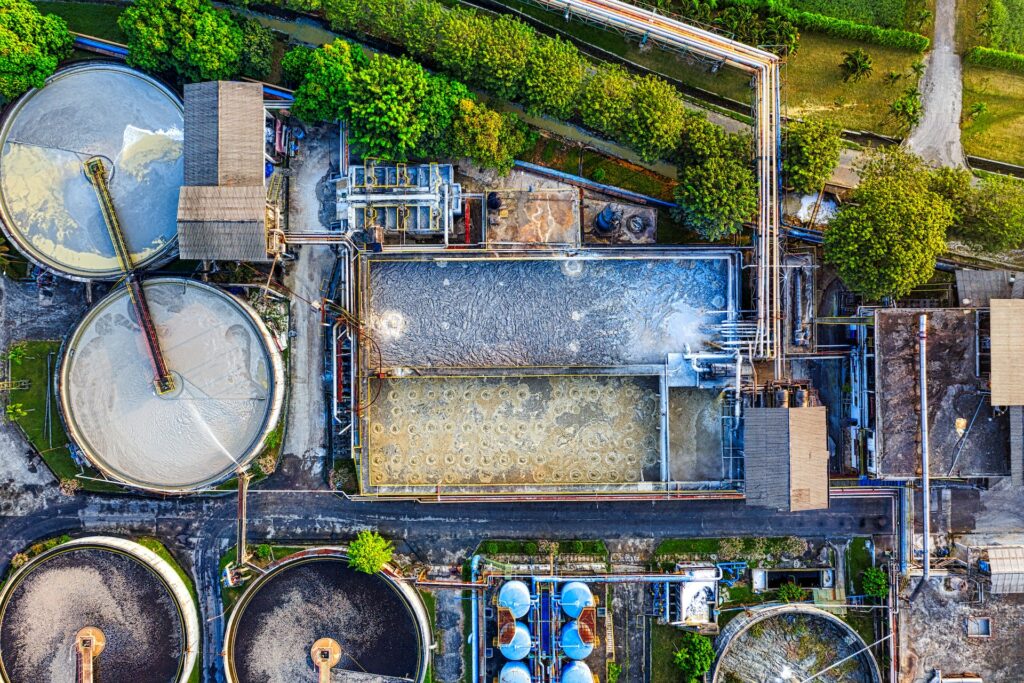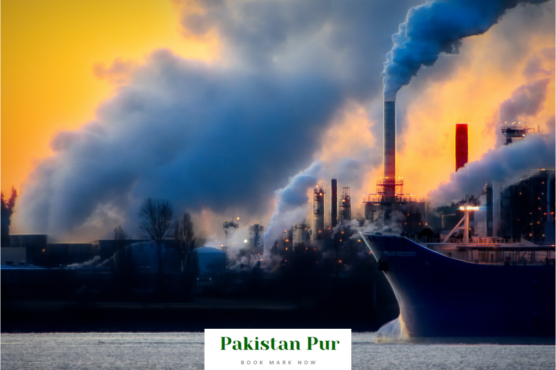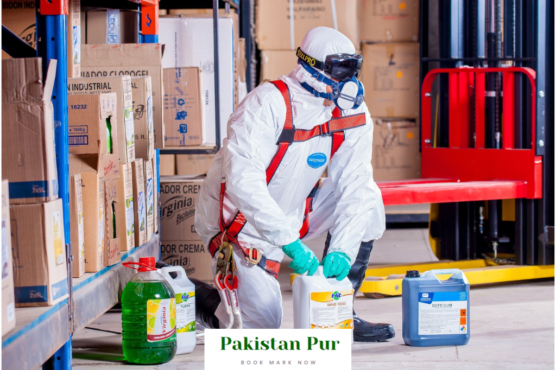
Table of Contents
BS Chemical Engineering is a comprehensive academic program that integrates principles of chemistry, physics, and mathematics to design, develop, and operate processes that transform raw materials into valuable products.
BS Chemical Engineering in Pakistan is a rigorous four-year program offered by several esteemed institutions such as Lahore University of Management Sciences (LUMS), COMSATS University, and NED University Of Engineering and Technology, among others.
The program integrates principles of chemistry, physics, and mathematics to design processes that transform raw materials into valuable products. It prepares students to compete in global markets, particularly catering to Pakistan’s chemical industry’s needs.
The curriculum provides a solid foundation in the initial two years, followed by specialized courses in the subsequent years.
This BS Chemical Engineering in Pakistan is a part of the series on the best degrees you can do after FSc Pre Engineering. Read the full list of degrees here.
Best Fields after FSc Pre Engineering in Pakistan
Chemical Engineering Universities In Pakistan
Here is a list of chemical engineering universities in Pakistan. Use the search function to find a university in a city.
| Institution | City | Program | Public/Private |
|---|---|---|---|
| University Of Gujrat | Gujrat | BS , 4 Years | Public |
| National University Of Science & Technology | Islamabad | BE , 4 Years | Public |
| Pakistan Institute Of Engineering & Applied Sciences | Islamabad | BS , 4 Years | Public |
| Mehran University Of Engineering & Technology | Jamshoro | B.Sc, 4 Years | Public |
| Dawood University Of Engineering And Technology | Karachi | BE , 4 Years | Public |
| NED University Of Engineering & Technology | Karachi | BE , 4 Years | Public |
| University Of Karachi | Karachi | BE , 4 Years | Public |
| University Of Engineering & Technology, Lahore | Lahore | B.Sc., 4 Years | Public |
| University Of The Punjab | Lahore | B.Sc., 4 Years | Public |
| Muhammad Nawaz Sharif University Of Engineering And Technology | Multan | B.Sc., 4 Years | Public |
| NFC Institute Of Engineering & Technology | Multan | B.Sc., 4 Years | Public |
| Quaid-e-awam University Of Engineering, Sciences & Technology | Nawab Shah | BE , 4 Years | Public |
| University Of Engineering & Technology, Peshawar | Peshawar | B.Sc., 4 Years | Public |
| Balochistan University Of It & Management Sciences | Quetta | BS , 4 Years | Public |
| Khawaja Fareed University Of Engineering & Information Technology | Rahim Yar Khan | BS , 4 Years | Public |
| Lahore University Of Management Sciences | Lahore | BS , 4 Years | Private |
| Minhaj University | Lahore | B.Sc., 4 Years | Private |
| Ghulam Ishaq Khan Institute Of Engineering Sciences & Technology | Swabi | BS , 4 Years | Private |
| University Of Wah | Wah Cantt | BE , 4 Years | Public |
| University Of Engineering And Technology | Faisalabad | B.Sc., 4 Years | Public |
| Universtiy Of Engineering And Technology, Kala Shah Kaku Campus | Lahore | B.Sc., 4 Years | Public |
| Comsats University | Lahore | BS , 4 Years | Public |
| Pak- Austria Fachhuochschule, Institute Of Applied Sciences And Technology | Haripur | BE , 4 Years | Public |
| Grand Charter College | Lahore | B.Sc., 4 Years | Private |
| Sharif College Of Engineering & Technology | Lahore | B.Sc., 4 Years | Private |
| Wah Engineering College | Taxila | B.Sc., 4 Years | Public |
| NFC Institute Of Engineering & Fertilizer Research | Faisalabad | B.Sc., 4 Years | Public |
Top Universities For Chemical Engineering in Pakistan
These universities are some of the best universities for chemical engineering in Pakistan.
- National University Of Science & Technology
- Pakistan Institute Of Engineering & Applied Sciences
- Mehran University Of Engineering & Technology
- NED University Of Engineering & Technology
- University Of Engineering & Technology, Lahore
- University Of Punjab
- University Of Engineering & Technology, Peshawar
- Ghulam Ishaq Khan Institute Of Engineering Sciences & Technology
- Wah Engineering College

BS Chemical Engineering Syllabus and Subjects in Pakistan
These are major subjects taught in BS chemical engineering in Pakistan.
- Chemistry I: Foundational course in chemistry.
- Calculus I: Fundamental courses in calculus.
- Islamic Studies: A course focusing on the study of Islam.
- Introduction to Chemical Engineering: Provides an overview of the field.
- Pakistan Studies: A course examining the history and culture of Pakistan.
- Chemical Engineering Mathematics: Application of mathematics in chemical engineering.
- Chemical Engineering Thermodynamics-II: Study of thermodynamics in the context of chemical engineering.
- Industrial Stoichiometry II: Focuses on balancing chemical equations in industrial processes.
- Electrical Technology: Understanding electrical systems relevant to chemical engineering.
- Organic Chemistry: Study of the structure, properties, composition, reactions, and synthesis of organic compounds.
- Digital Electronics: Understanding digital electronics and their application in chemical engineering.
- Inorganic Chemical Technology: Focuses on the technology used in inorganic chemical processes.
- Chemical Reaction Engineering Lab: Practical lab work related to chemical reactions.
- Applied Chemistry-I (Physical & Analytical Chemistry): Application of physical and analytical chemistry in engineering.
This curriculum provides a comprehensive and well-rounded education for BS Chemical Engineering students in Pakistan.
Read this guide to know about the salary and scope of BS chemical engineering in Pakistan.
Scope And Salary Of Chemical Engineering In Pakistan
HEC Syllabus for BS Chemical Engineering in Pakistan
Here is the HEC syllabus for BS Chemical Engineering in Pakistan. HEC prepared this syllabus with input from the Pakistan Engineering Council.
BS Chemical Engineering: Semester 1 Subjects
- Functional English
- Islamic Studies/Ethics
- Chemical ProcessCalculations-I
- Engineering Drawing
- Inorganic & Organic Chemistry
- Calculus & Statistics
BS Chemical Engineering: Semester 2 Subjects
- Physical & Analytical Chemistry
- Pakistan Studies
- Differential Equations
- Applied Physics
- Communication Skills
- Chemical Process Technology
BS Chemical Engineering: Semester 3 Subjects
- Workshop Practices
- Applied Electrical Engineering
- Applied Biology
- Engineering Thermodynamics
- Engineering Mathematics
- Fluid Mechanics-I
- Engineering Mechanics
BS Chemical Engineering: Semester 4 Subjects
- Computer-Aided Engineering Drawing
- Computer Fundamentals & Programming
- Chemical Engineering Thermodynamics
- Particulate Technology
- Social Sciences-I
- Chemical Process Calculations-II
BS Chemical Engineering: Semester 5 Subjects
- Mass Transfer
- Fluid Mechanics-II
- Engineering Materials
- Heat Transfer
- Industrial Management
- Technical Report Writing & Presentation Skills
BS Chemical Engineering: Semester 6 Subjects
- Fuels & Energy
- Chemical Reaction Engineering
- Maintenance Engineering & Safety
- Numerical Methods & Software Applications
- Engineering Economics
BS Chemical Engineering: Semester 7 Subjects
- Simultaneous Heat and Mass Transfer
- Instrumentation & Process Control
- Chemical Plant Design
- Elective-I
- Design Project- I
BS Chemical Engineering: Semester 8 Subjects
- Transport Phenomena
- Elective-II
- Elective-III
- Chemical Process Design & Simulation
- Design Project-II

BS Chemical Engineering Admission Requirements
In Pakistan, the eligibility criteria for admission to a BS Chemical Engineering program can vary slightly depending on the university. However, there are some common requirements:
- Educational Background: Applicants must have completed their intermediate education (FSC or A-level) with a Science major, preferably Pre-engineering.
- Minimum Marks Requirement: They should have scored at least 60% marks in both Matriculation and Intermediates.
- Admission Test: Some universities require students to pass an entrance exam. For example, PIEAS has its own admission test, while Minhaj University Lahore requires the UET test.
It’s important to note that these are the general requirements. Specific eligibility criteria may vary from one institution to another. Always check the official websites of your preferred universities for the most accurate information.
BS Chemical Engineering Fee Structure
PU Chemical Engineering Fee Structure
- Total 1st Semester Fee: Rs. 60,620
- Total Program Fee: Rs. 460,560
Comsats Lahore Fee Structure For Chemical Engineering
- Admission Fee: Rs. 22,000
- Total 1st Semester Fee: Rs. 133,500
- Total Program Fee: Rs. 938,500 approx.
Chemical Engineering Universities in Lahore
These universities are offering BS chemical engineering in Lahore.
- University Of Engineering & Technology, Lahore
- University Of Punjab
- Lahore University Of Management Sciences
- Minhaj University
- University Of Engineering And Technology, Kala Shah Kaku Campus
- Comsats University
- Grand Charter College
- Sharif College Of Engineering & Technology
Chemical Engineering Universities in Karachi
These universities are offering BS chemical engineering in Karachi.
- Dawood University Of Engineering And Technology
- NED University Of Engineering & Technology
- University Of Karachi
Chemical Engineering Universities in Islamabad & Rawalpindi
These universities are offering BS chemical engineering in Islamabad & Rawalpindi.
- National University Of Science & Technology
- Pakistan Institute Of Engineering & Applied Sciences
Chemical Vs Mechanical Vs Civil Engineering
| Criteria | Chemical Engineering | Mechanical Engineering | Civil Engineering |
| Definition | Focuses on designing processes to transform raw materials into usable products. | Involves the design, production, and operation of machinery. | Concentrates on the design, construction, and maintenance of infrastructure. |
| Job Prospects | High demand in pharmaceuticals, food processing, and energy sectors. | Broad range with opportunities in automotive, aerospace, and robotics. | Primarily in construction, transportation, and environmental sectors. |
| Key Skills | Strong understanding of chemistry and biology, process optimization. | Proficiency in physics and material science, mechanical systems design. | Expertise in structural analysis, project management, and environmental science. |
| Innovation | Innovations in sustainable and green technologies, bioengineering. | Progress in automation, AI, and renewable energy systems. | Developments in smart cities, green buildings, and sustainable infrastructure. |
Choose wisely based on your interests and long-term career goals. Each of these engineering disciplines offers unique opportunities and challenges, making them equally rewarding and demanding.
Chemical Vs Petroleum Engineering
| Criteria | Chemical Engineering | Petroleum Engineering |
| Definition | Involves designing processes for transforming raw materials into valuable products. | Focuses on the extraction, production, and management of oil and gas resources. |
| Job Prospects | Opportunities in pharmaceuticals, food processing, and energy sectors. | High demand in oil and gas industries, energy consulting firms. |
| Key Skills | Mastery of chemistry and biology, process optimization. | Strong understanding of geology, reservoir engineering. |
| Innovation | Progress in sustainable technologies, bioengineering. | Innovations in efficient extraction methods, renewable energy sources. |
Industrial Engineering Vs Chemical Engineering
| Criteria | Industrial Engineering | Chemical Engineering |
| Definition | It’s about optimizing complex processes or systems for efficiency. | It involves transforming raw materials into valuable products. |
| Job Prospects | High demand in manufacturing, logistics, and business services. | Abundant opportunities in pharmaceuticals, food processing, and energy sectors. |
| Key Skills | Problem-solving, system analysis, and people management are crucial. | Proficiency in chemistry and biology, and process optimization is essential. |
| Innovations | Advancements in supply chain improvement and automation are noteworthy. | Progress in sustainable technologies and bioengineering is significant. |
When choosing between these engineering disciplines, it’s vital to consider your interests and career goals. Both fields offer unique opportunities and challenges, with promising job prospects and exciting innovations.
Industrial Engineering is more about improving systems and processes, making it suitable for those interested in management and operational efficiency. On the other hand, Chemical Engineering focuses on transforming raw substances into useful products, which may appeal to those passionate about chemistry and biology.
Consider the job market trends and evolving skill requirements when making your decision. Both fields are continually evolving, offering ample opportunities for growth and innovation.

Chemical Vs Materials Engineering
| Criteria | Chemical Engineering | Materials Engineering |
| Definition | Focuses on designing processes to convert raw materials into useful products. | Involves the development, processing, and testing of materials for various applications. |
| Job Prospects | Opportunities abound in pharmaceuticals, food processing, and energy sectors. | Prospects are high in manufacturing, aerospace, and electronics industries. |
| Key Skills | Mastery of chemistry and biology, process optimization. | Proficiency in material science, understanding of physical and mechanical properties of materials. |
| Innovation | Innovations in sustainable technologies, bioengineering. | Progress in nanotechnology, composite materials, and biomaterials. |
Applied Chemistry Vs Chemical Engineering
Both applied chemistry and chemical engineering are highly respected fields of study, each with its unique focus and career prospects. This comparison will help you make an informed decision about which path aligns best with your interests and career goals.
Key Focus
Applied Chemistry
- Core Discipline: Applied Chemistry involves the practical application of the principles and theories of chemistry.
- Areas of Study: It includes areas such as analytical chemistry, inorganic chemistry, organic chemistry, and physical chemistry.
- Objective: The goal is to develop new chemicals and improve existing ones to solve real-world problems.
Chemical Engineering
- Core Discipline: Chemical Engineering is the application of chemical, physical, and biological sciences to the process of converting raw materials into more useful forms.
- Areas of Study: It encompasses subjects like thermodynamics, fluid mechanics, heat and mass transfer, and process design.
- Objective: The aim is to design, operate, and optimize processes that transform materials into valuable products.
Career Opportunities
Applied Chemistry
- Industries: Applied chemists can work in a wide variety of sectors, including pharmaceuticals, food and beverage, environmental science, and material science.
- Roles: They often work as research scientists, laboratory technicians, quality control specialists, and consultants.
Chemical Engineering
- Industries: Chemical engineers are sought after in industries such as energy, pharmaceuticals, food processing, petrochemicals, and environmental services.
- Roles: They typically hold positions as process engineers, project engineers, consultants, and research scientists.
In conclusion, while both fields share a common foundation in chemistry, their applications and career paths differ significantly. Your choice should be guided by your interest in pure chemistry versus engineering principles and the type of work you envision yourself doing.
FAQs
What should be a proper goal of chemical engineer?
A chemical engineer should aim to innovate and optimize processes for converting raw materials into valuable products. They should strive to enhance efficiency, sustainability, and safety in industries like pharmaceuticals, food processing, and energy. Ultimately, their goal is to create solutions that benefit society and the environment.
What should be a skills of a chemical engineer?
A chemical engineer must have:
Proficiency in chemistry and biology.
Strong problem-solving abilities.
Knowledge of process optimization techniques.
Understanding of safety protocols.
Ability to innovate for sustainability.
These skills guide chemical engineers in transforming raw materials into valuable, safe, and eco-friendly products.
Will chemical engineers be replaced by robots?
While automation and AI can streamline some routine tasks, the role of a chemical engineer is far from being fully replaced by robots. Their expertise in problem-solving, innovation, and understanding complex chemical processes is uniquely human. Thus, they remain integral in industries that rely on transforming raw materials into valuable products.
Leave a Reply